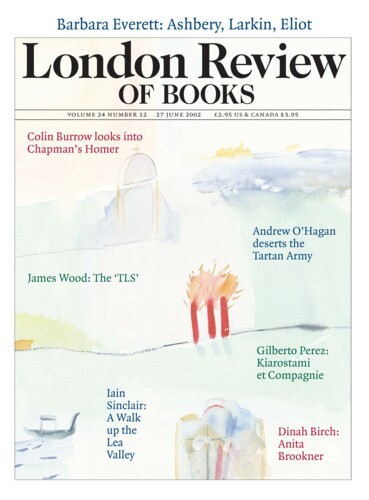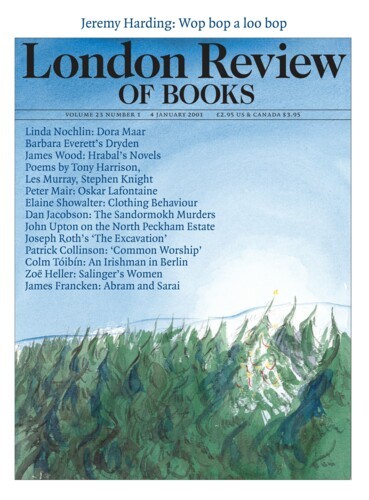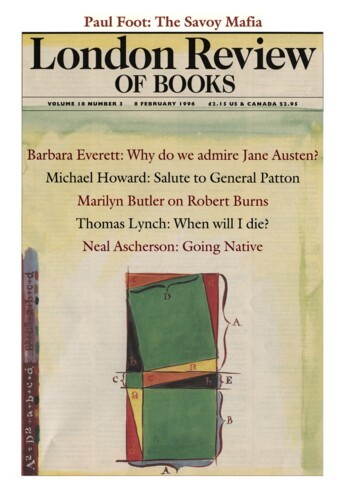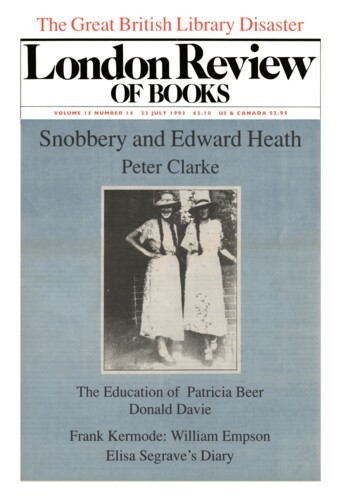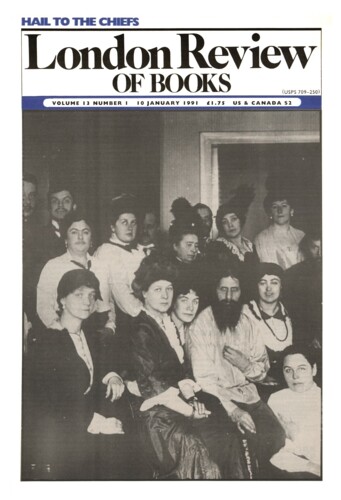Distraction v. Attraction: Ashbery, Larkin and Eliot
Barbara Everett, 27 June 2002
This essay, in an earlier version, given as a paper at the conference on ‘Something We Have that They Don’t: Anglo-American Poetic Relations since the War’, organised by Mark Ford and Steve Clark under the aegis of the University of London.
Few 20th-century events, even in literary history alone, were at once important and relatively harmless. One was the rise and fall of...
